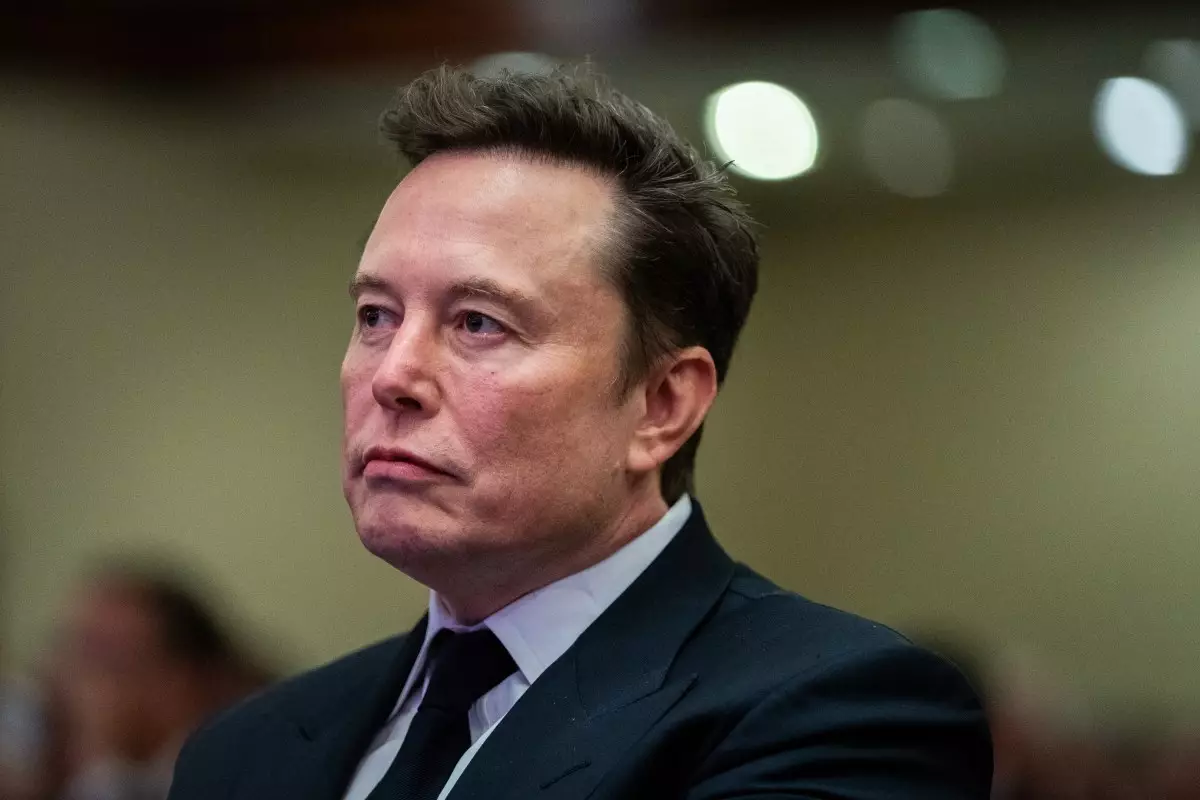Elon Musk, the tech mogul known for his ventures across multiple industries, has recently reignited his battle against OpenAI, a company he co-founded, by filing a motion for a preliminary injunction that seeks to halt alleged anticompetitive behaviors. This legal move has stirred a significant discussion on the implications of competition in the AI sector and the responsibilities of firms that were initially established under nonprofit missions.
Musk’s attorneys have laid out a complex web of accusations against OpenAI, its CEO Sam Altman, and other key figures involved with the organization, including Microsoft and several of OpenAI’s co-founders. The essence of the legal motion is rooted in claims that OpenAI has deviated not only from its original nonprofit mission but has also engaged in practices that could stifle competition. The motion articulates claims that OpenAI and its associates have effectively discouraged investment from other parties—including entities like Musk’s own AI startup, xAI—by creating barriers that limit funding opportunities for rival projects.
The attorneys argue that if the preliminary injunction is not granted, Musk, the public, and the integrity of the nonprofit sector stand to suffer irreparable harm. They emphasize that the original promises made by OpenAI to prioritize public interest over profit could be lost permanently with currently ongoing actions by these parties.
A significant claim within Musk’s injunction filing involves the alleged transformation of OpenAI from a nonprofit entity to a for-profit scheme. This shift, Musk’s legal team argues, has facilitated self-dealing among the leadership and has compromised OpenAI’s foundational ideals. The allegations extend to accusations of improper asset transfers, including intellectual property, from OpenAI to private interests that allegedly serve the financial benefits of board members rather than the public.
Musk’s legal representation underscores the detrimental implications such transitions could have, not just for investors but also for societal expectations surrounding nonprofit organizations. By suggesting that these actions amount to a betrayal of public trust, Musk’s attorneys significantly question the ethical ground upon which OpenAI now operates.
Musk’s motion also addresses detrimental competitive practices allegedly engaged in by OpenAI and its partners, particularly under the auspices of their connections with Microsoft. The assertion that OpenAI utilized proprietary information gleaned through its relationship with Microsoft raises critical questions about the adequacy of current regulations governing corporate partnerships in the tech realm. Musk’s lawsuit implies a systemic issue of favoritism, suggesting that OpenAI is effectively acting in ways that maintain its dominant position at the expense of new entrants to the market, including Musk’s own xAI.
The ethical implications of such actions cannot be understated, given that they not only impact market dynamics but also have the potential to stifle innovation by sidelining emerging competitors. Furthermore, the alleged collusion between the major players in the AI field raises significant antitrust concerns that regulators may need to closely evaluate.
Interestingly, while Musk’s xAI continues to secure significant investment—reportedly closing a $5 billion funding round—OpenAI is claimed to be spending beyond its means, making it critically important for the court to intervene and impose the injunction Musk seeks. Musk’s attorneys indicate that OpenAI could face existential risk if it cannot maintain its funding capacity while balancing litigation expenses.
This situation highlights the contrasting financial circumstances between the two organizations, which could further skew the competitive landscape should the court rule in favor of Musk’s demands. If successful, the injunction could serve not only as a mechanism to preserve Musk’s interests but also as a precedent in regulating behavior in the burgeoning AI market.
Ultimately, the legal tussle between Musk and OpenAI encapsulates broader concerns about the integrity of nonprofit organizations that transition to profit-oriented frameworks and the implications for competitive fairness in the technology sector. Stakeholders and regulators alike may need to closely monitor the developments in this case. A ruling in Musk’s favor could potentially call for more stringent oversight and provide a roadmap for safeguarding the original missions of organizations designed to benefit the public.
Musk’s earlier withdrawal of his lawsuit, only to revive it with new allegations and parties, underscores the fluidity of the situation and the gravity with which he perceives these issues of competition and ethics. Whether this legal intervention will lead to substantial changes in the AI landscape or simply add another chapter to ongoing disputes remains to be seen. However, it certainly raises critical questions about the accountability of influential entities operating at the intersection of technology, ethics, and public service.

